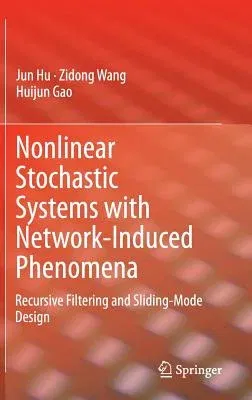This monograph introduces methods for handling filtering and control
problems in nonlinear stochastic systems arising from network-induced
phenomena consequent on limited communication capacity. Such phenomena
include communication delay, packet dropout, signal quantization or
saturation, randomly occurring nonlinearities and randomly occurring
uncertainties.
The text is self-contained, beginning with an introduction to nonlinear
stochastic systems, network-induced phenomena and filtering and control,
moving through a collection of the latest research results which focuses
on the three aspects of:
- the state-of-the-art of nonlinear filtering and control;
- recent advances in recursive filtering and sliding mode control; and
- their potential for application in networked control systems, and
concluding with some ideas for future research work. New concepts such
as the randomly occurring uncertainty and the probability-constrained
performance index are proposed to make the network models as realistic
as possible. The power of combinations of such recent tools as the
completing-the-square and sums-of-squares techniques,
Hamilton‒Jacobi‒Isaacs matrix inequalities, difference linear matrix
inequalities and parameter-dependent matrix inequalities is exploited in
treating the mathematical and computational challenges arising from
nonlinearity and stochasticity.
Nonlinear Stochastic Systems with Network-Induced Phenomena
establishes a unified framework of control and filtering which will be
of value to academic researchers in bringing structure to problems
associated with an important class of networked system and offering new
means of solving them. The significance of the new concepts, models and
methods presented for practical control engineering and signal
processing will also make it a valuable reference for engineers dealing
with nonlinear control and filtering problems.

